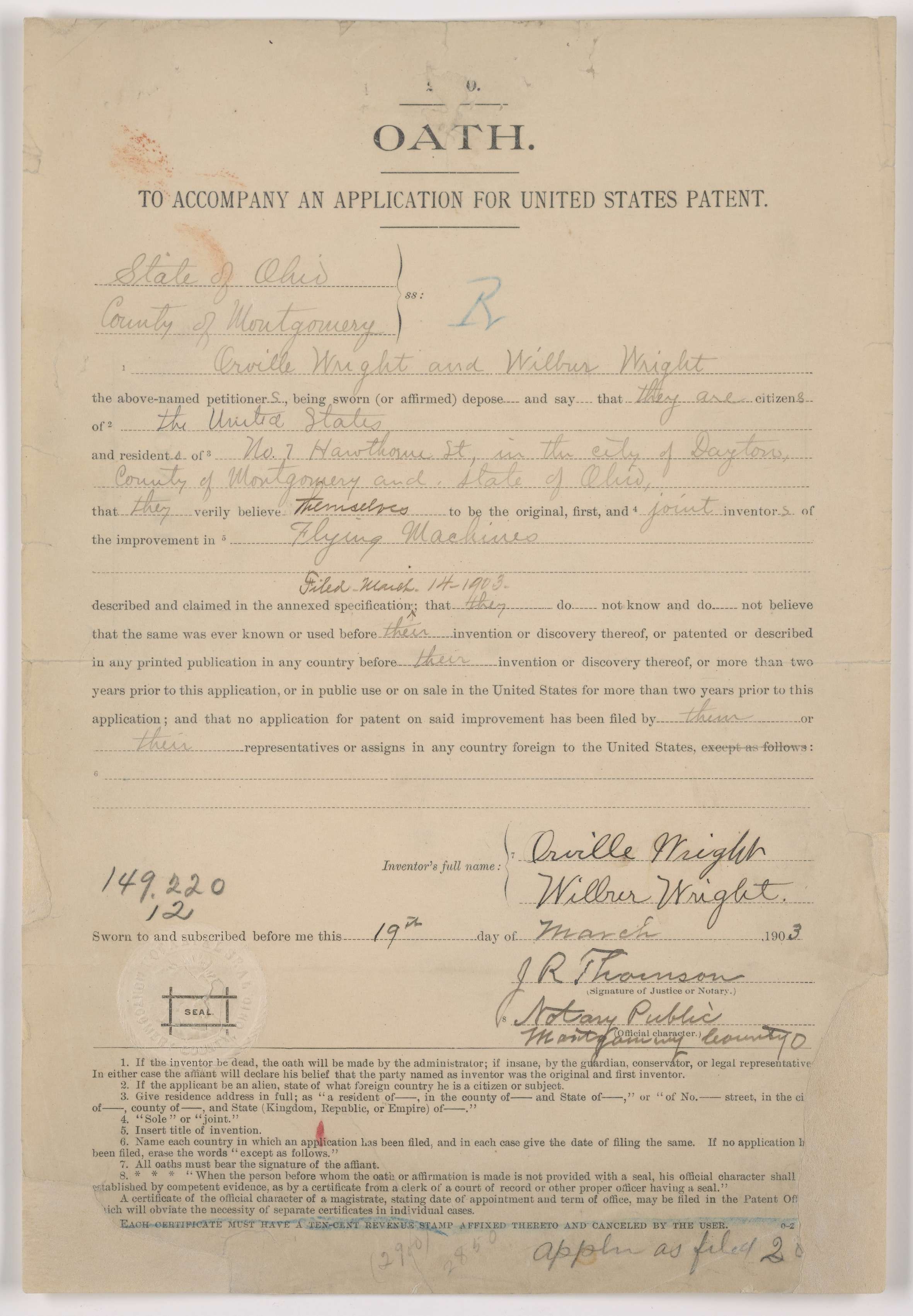Wilbur and Orville Wright's Oath to Accompany the Patent for an "Improvement in Flying Machines"
3/19/1903
Add to Favorites:
Add all page(s) of this document to activity:

Wilbur and Orville Wright patented the design for several unpowered gliders before making their first successful flight in a powered aircraft later in 1903. This patent oath is for one of those unpowered gliders.
In this oath they swore they were U.S. citizens and that they believed themselves to be "the original, first, and joint inventors of the improvement in flying machines."
In this oath they swore they were U.S. citizens and that they believed themselves to be "the original, first, and joint inventors of the improvement in flying machines."
This primary source comes from the Records of the Patent and Trademark Office.
National Archives Identifier: 302054
Full Citation: Wilbur and Orville Wright's Oath to Accompany the Patent for an 'Improvement in Flying Machines'; 3/19/1903; Patent No. 821393; Selected Patent Files, 1840 - 2005; Records of the Patent and Trademark Office, Record Group 241; National Archives at College Park, College Park, MD. [Online Version, https://docsteach.org/documents/document/wright-brothers-oath, April 25, 2024]Rights: Public Domain, Free of Known Copyright Restrictions. Learn more on our privacy and legal page.



